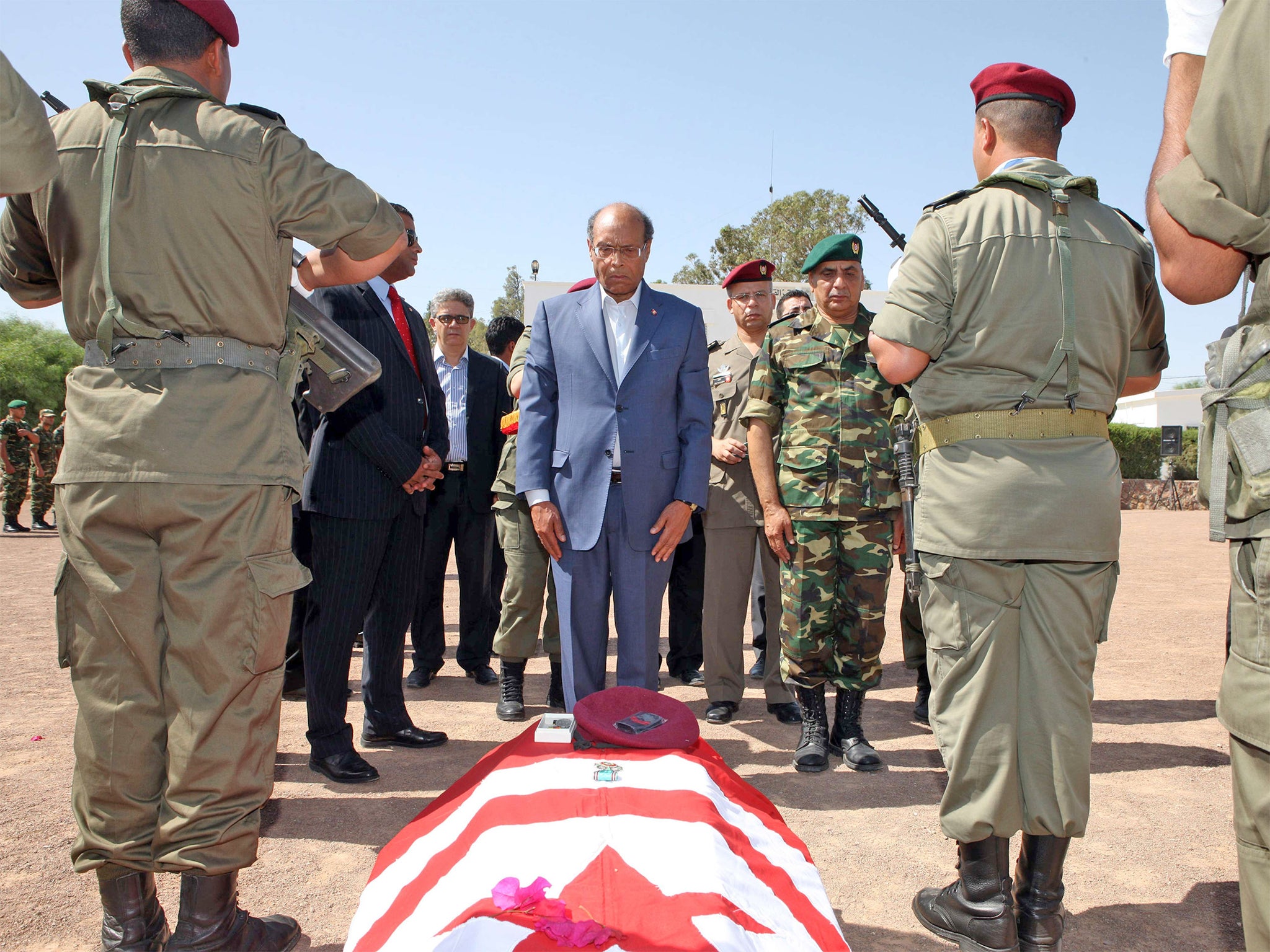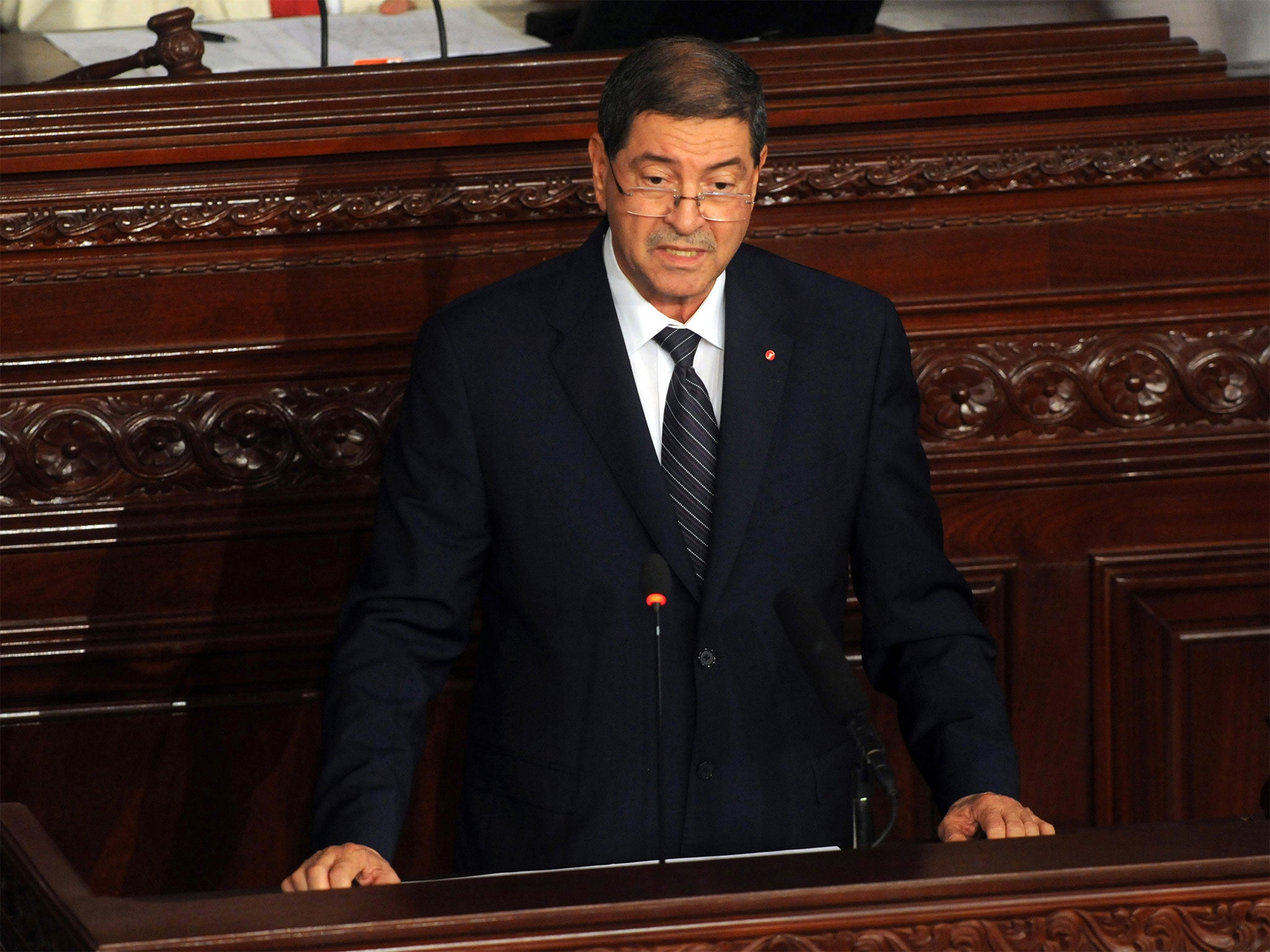Tunisia's president renews state of emergency for another two months
The state of emergency was imposed after a bloody attack on a beach resort killed 38 tourists, mostly Britons

Your support helps us to tell the story
From reproductive rights to climate change to Big Tech, The Independent is on the ground when the story is developing. Whether it's investigating the financials of Elon Musk's pro-Trump PAC or producing our latest documentary, 'The A Word', which shines a light on the American women fighting for reproductive rights, we know how important it is to parse out the facts from the messaging.
At such a critical moment in US history, we need reporters on the ground. Your donation allows us to keep sending journalists to speak to both sides of the story.
The Independent is trusted by Americans across the entire political spectrum. And unlike many other quality news outlets, we choose not to lock Americans out of our reporting and analysis with paywalls. We believe quality journalism should be available to everyone, paid for by those who can afford it.
Your support makes all the difference.Tunisia's presidency on Friday extended the country's state of emergency for an additional two months as the country battles a violent Islamic insurgency that last month killed 38 tourists on a beach.
The brief statement on the presidency's Facebook page said the decision was taken following consultations with the speaker of parliament and the prime minister, and would take effect Monday.
Just over a month ago, Tunisia was stunned by a bloody attack by a single gunman on a beach resort killing 38 tourists, mostly Britons. The attack followed another one on tourists back in March.
Tunisia had been criticized for lax security at tourist sites, and Britain called for all its citizens to depart in the wake of the attack.
President Beji Caid Essebsi declared a state of emergency on July 4, and an additional 3,000 officers have been deployed to tourist sites.
Under the state of emergency, the army has been deployed to guard sites and authorized to shoot to kill if under threat. Rallies of more than three people are also banned — though this provision has rarely been enforced.

In the past week, Tunisian security forces have carried out an aggressive string of raids on suspected militants in cities around the country, arresting dozens and killing at least one.
Tunisia's parliament nearly unanimously passed a new anti-terror law on July 25 that is meant to aid the fight against militant groups. But it has provoked fears that the freedoms won in the 2011 revolution might be threatened.
A joint statement issued by eight rights groups, including Amnesty International and Human Rights Watch expressed concern Friday over the law's loose definition of terrorism and lengthy preventive detention provisions.
"Tunisia's new counterterrorism law imperils human rights and lacks the necessary safeguards against abuse," said the statement. "The law grants security forces broad and vague monitoring and surveillance powers."
AP
Join our commenting forum
Join thought-provoking conversations, follow other Independent readers and see their replies
Comments